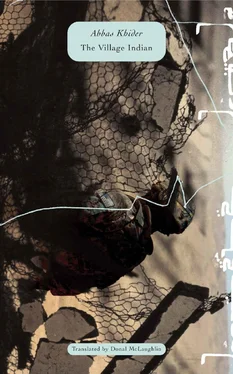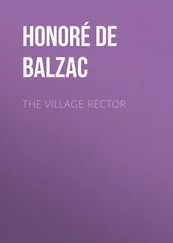Abbas Khider
The Village Indian
For those who, a second before they die,
still dream of two wings
‘The Intercity-Express 1511 from Berlin to Munich, calling at Leipzig, Bamberg, Nuremberg and Ingolstadt, will depart from Platform 3 at 12.57.’ The voice over the speaker: unpleasantly tinny. A brief glance at the large clock on the platform: 12.30. Just under half an hour to go. I put my paper and coffee down on the bench. Zoo Station. I cast my eye over it again.
Empty. Totally empty. The feeling, for a moment, that I’m all alone on the platform. That the people have vanished or that perhaps were never there at all. Empty. And all bright and clean. No trains, no passengers, no announcements. Nothing — only me and an empty Zoo Station, the vast nothingness round me. Where am I? What am I doing here? Where’s everyone else? Questions like these boom in my head — like drums at an African festival. Empty, like a never-ending desert, bare mountains or clear water. Eerie too, like a forest after a violent storm. And my questions, loud, yet quiet; echoing, though unvoiced.
This feeling lasts for a few minutes — or is it more than that? It’s not the first time I’ve felt so disoriented. It’s been like this for a few years now. I worry, sometimes, that there’ll come a day when I won’t find my way back out. Of this madness. This desert in my head.
The station concourse, thank God, is still there. The graffiti on the walls too. ‘My joker’s no longer a joke.’ ‘Simone is my babe.’ The curried-sausage and hotdog stands. . The people. .
12.40. I cast my eye over the station again. This time there are no African drums. The platform, full. Passengers boarding trains or looking for an exit. Some running, so as not to miss connections. A group of half-naked girls and boys, in short trousers and summer tops, stroll along the platform, carrying their rucksacks. Like a bunch of schoolchildren, almost. The girls are laughing, their loud, clear voices bring the station to life. A few older people ahead of them. Their teachers, perhaps — their faces serious. Almost all of them are pulling a black case.
Pigeons, wherever you look. They’ve even made nests under the roof. A male bird is seducing a female. The male spreads his feathers, drags them along behind him, then swaggers round the female, flirting. ‘Coo, coo. Coo, coo.’ The female, head held high, struts up and down before him like a queen. She moves, at times slowly, at times quickly, driving him wild. Not far from them, a schoolboy is chatting up a girl, or trying to. The girl smiles. Bravely, he swaggers round her. She takes off for the exit and he follows, blindly. ‘Lukas, come back,’ one of the male teachers shouts after him.
12.45. The train approaches. I find my reserved seat in the smoking compartment. Put the rucksack between my feet. Place a notebook, a book, a packet of cigarettes and a lighter on the table. Light a cigarette. .
13.02. A little late, the train begins to move. On the seat next to me I spot a big, fat envelope. A whole wad of papers in it, it seems. On the outside, in squiggly writing, the Arabic word for ‘memories’. The person next to me has gone to the toilet, perhaps. Or to the restaurant car. He’ll be back soon, for sure. I’m already looking forward to speaking Arabic, to the opportunity. With a poet perhaps. Someone interested in words, at least. In reading and writing.
13.30. My neighbour still hasn’t come back. He’ll be back soon. Won’t leave the envelope lying here for ever. Where might he be from? There are so many Arab states. I hope he’s from one I know well. If so, we’ll have plenty to chat about.
14.16. The train is almost at the next stop. ‘Next stop, Leipzig,’ the voice drones from the speaker. The envelope is still here. A few people get off, a few get on. A girl sits opposite me. Headphones on, she’s listening to music on her MP3 player. A boy sits in the seat beside her and turns on his laptop. A lady with short, blond hair and talking on her mobile phone, tries to sit next to me. She gives me an annoyed look, reaches for the envelope, drops it on my lap, occupies the seat and — cool as you please — continues with her call.
What was that all about? Who does she think she is? Such inconsiderate behaviour! Should I tell her the envelope isn’t mine? God! She’s still on the phone! About fifty, probably. Looks like a lot of women do in this country — bit of lipstick, skirt, blouse, a mini-handbag that’d suit a queen bee better, black high heels. They’re unpredictable, women like that. Best stay calm. .
14.20. The train moves off, slowly. I lift the envelope carefully, leave the compartment and go in search of the restaurant. The pretty young waitress brings me a large coffee really quickly. In front of me, on the small table, the envelope. A difficult decision. Should I give it to the conductor? Explain it’s lost property? My curiosity is too great, though. I decide to open it and read what’s inside, before — perhaps — handing it in.
Outside the window, the bottle-green landscape is glowing in the sun. I sip my coffee. Light a cigarette. Eye the waitress. She’s young. Eighteen to twenty, say. Her hair’s dyed red and she’s wearing the familiar blue jacket of the Deutsche Bahn, but with jeans and a white T-shirt, ‘Sexy Girl’ printed on it. Small, firm breasts support the lettering.
I take my coffee and the envelope and return to my seat in the compartment. The lady is still on the phone, the boy is still hammering on his laptop and the girl is still enjoying her music.
14.45. The train moves on. I open the envelope.
There are two things: emptiness and the I portrayed.
GOTTFRIED BENN
When, in 762, Caliph al-Mansur was travelling through the vast expanses of the Orient in search of rest and calm, his eyes suddenly fell on an idyllic landscape between two rivers. Without a moment’s thought, he ordered his soldiers to dig a large ditch round this piece of land, fill it with wood and light a fire at dusk. As the flames flared, he looked down from a nearby hill and announced, ‘Here is where my city shall be founded.’ And he named the city Madinat al-Salam, the city of peace, known today as Baghdad. The city of peace has never known peace. And again and again, rulers have stood on the hill and watched it burn.
I was born in this fire, in this city, perhaps that’s why my skin is this coffee colour. I was well grilled — like mutton — over the fire. For me, the ghosts of the fire have always been present, I’ve seen the city burn time and again. One war embraced another. One catastrophe followed the next. Each time, Baghdad, or all of Iraq — in the skies and on the ground — burnt: from 1980 to 1988 in the First Gulf War; from 1988 to 1989 in the war that the Ba’ath regime waged against the Iraqi Kurds; in the Second Gulf War in 1991; in the same year again, during the Iraqi uprising; in 2003, in the Third Gulf War; and, in between, in hundreds of smaller fires, battles, uprisings and skirmishes. Fire is this country’s fate, and even the waters of the two great rivers, the Euphrates and the Tigris, are powerless against it.
Even the sun in Baghdad is friends with the fire ghosts. In summer, it never wants to go down and rolls through the city, like a carriage of iron and fire, slashing the horizon’s face, shunting its aimless way through the streets and houses. Is this merciless sun the reason for my burnt and dusty looks? Yet, my birthday is on 3 March, long before the hot season with its temperatures of up to fifty degrees. Or is the heat of the oven to blame for my dark skin? If — as she always said — I really did drop from my mother’s belly in the kitchen, then I must have spent many hours there, even as a newborn, right next to the stove where black beans and aubergine were often cooking. I suspect that the stone oven on which my mother baked our bread did its bit too. How I loved to watch as my mother took the pitta, when it was ready, from the oven and threw them onto a large palm-leaf plate at her feet. Each and every time, I’d sneak up to the hot bread. Each and every time, I’d feel the irresistible urge to touch it, only to burst out crying when I’d again burn my fingers. And each and every time, I’d remain sitting as close as I could to that fascinating stone-oven fire.
Читать дальше












